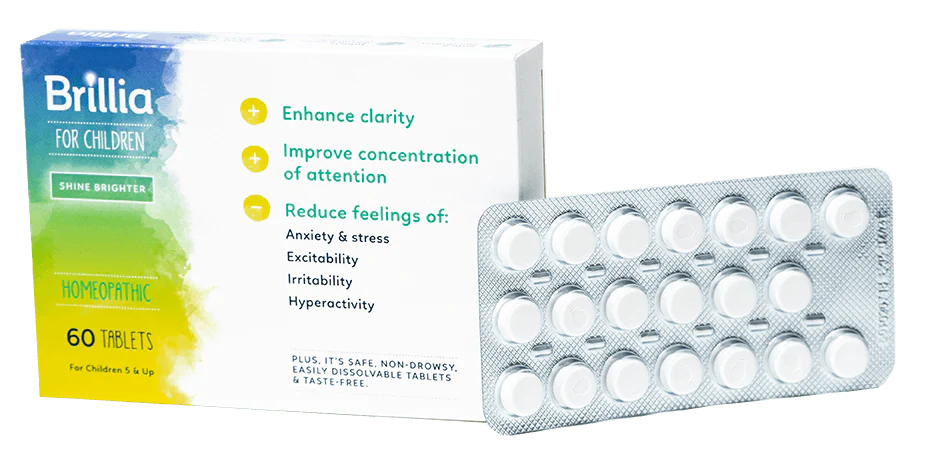Preparing for New Year's with Anxiety
This year is going to be different. The days of pushing things off or canceling plans at the last minute are over. But are they? Anxiety is a tricky beast. Severe forms can lead to people operating in a near constant state of fight or flight, which is exhausting.
As you prepare to make your New Year's resolutions this year, consider tangible, measurable goals. Promising to get rid of your anxiety may be not only too vague, but also unrealistic. The purpose of this guide is to help you, as an individual with anxiety, learn how to make resolutions by preparing an executable plan for the New Year, one that will help you create a path for continuous improvement year over year, for a lifetime.
How to Set New Year’s Resolutions When You Have Intense Anxiety
Most people with anxiety want to change or improve how they respond to their anxiety triggers, but they either find it incredibly difficult to do so or overshoot with ambition. The hope for a new year and a new self often brings an incredible amount of excitement and purpose. Unfortunately, too many anxious people expect to completely alter their perspective and personality within the new year's first couple of months.
To help you set New Year’s resolutions you’ll actually want to stick to this year, try using some of the following tips.
1. Self-Reflection & Mindfulness
Before you can set an actionable resolution, you need to practice some self-reflection and become mindful of what you want to change and why. For example, if your goal is to face something that typically makes you anxious, whether that’s speaking up in meetings or attending more social gatherings, it’s important that you investigate the root cause of your anxiety to better understand it.
In the days and weeks leading up to New Year's, reflect on your triggers and ask yourself some hard questions: when did this anxiety begin? What contributed to it? What would happen if you were no longer anxious? How would your life change? What things can you do to make that transition easier? You may want to do this self-reflection while sitting in meditation, taking a mindful walk, or journaling. . A significant aspect of resolution success is preparation. As an anxious individual, it is critical to give yourself time to plan, even if making those plans become part of the resolution.
2. Know That “Anxiety-Free” Might Not be a Realistic Goal
How do you measure your success, and how do you ensure that any progress is lasting? Take some of the pressure off by setting realistic and manageable goals towards achieving significant change. Patience is key.
Are you someone who is striving to participate in more group events but struggle with social anxiety? Make a plan to attend a specific number of social gatherings throughout the year to ease your way back into the social scene. That way, you can mentally prepare for the moments you plan to go out and can get excited for the night ahead. It is also important to keep in mind that skipping social opportunities is a completely normal and healthy thing to do. Don’t beat yourself up for not feeling up to a big night out. There will always be more opportunities for you to spread your wings.
By being honest with yourself about what is and isn’t realistic, you will be able to fully map out a plan and stick with it until you meet your goals.
3. Don’t Overwhelm Your Anxiety with Big Steps
Change doesn’t happen overnight. One of the biggest reasons people abandon their resolutions is because they expect too much all at once. For instance, if you’re hoping to shed some weight quickly following your holiday indulgences, start slowly by improving your diet in small, realistic ways. When you go grocery shopping, ditch the processed items or opt for products with no added sugars. If you typically stop for fast food a few times a week, cut it down to once a week, and then maybe once every two weeks until maybe you don’t want to eat fast food at all.
After making small tweaks to your diet, shift your attention to your activity levels. When you are feeling up to it, start incorporating a workout routine that makes you feel good afterward. Not a fan of running on a treadmill? Look up some nearby hiking trails. Not a fan of hiking? Why not learn a sport, like pickleball or basketball?
Making changes to your nutrition and exercise can also improve the effects of anxiety, so you’ll be boosting your physical and mental health at once.. Ultimately, don’t put too much pressure on yourself to achieve your end goal as quickly as possible. The objective is to make small achievable goals that eventually result in the significant change you want to see.
Shine Brighter
4. Try to Shift Your Negative, Anxiety-Ridden Thoughts to Positive Ones
If you want to achieve your resolution goal, you need to alter your focus from the negative to the positive. Learning how to find the good in situations can greatly improve your mood and motivation while helping you to manifest the goals in your life.
For example, if your goal is taking longer to achieve than expected, how can you enjoy the climb? Consider integrating some rewards into the process each time you achieve a small victory on your way towards your goal. Also take the time to write down what you are learning along the way and the self growth that you are experiencing.
Didn’t get the job you were interviewing for? Don’t spend too much of your time sulking about it. Of course, it is okay to feel sad about outcomes that didn’t go your way. However, rather than seeing these moments as “missed opportunities,” look at them as another learning experience that is preparing you for an even better opportunity up ahead.
While self-reflection and mindfulness are important tools you can use to help shift your attention from the negative to the positive, there are other ways you can support your brain as it processes all of this new information. Brillia is a non-prescription medication that helps to reduce symptoms like anxiety, irritability, and restlessness by balancing your brain chemicals on a cellular level. Free from harsh, synthetic chemicals and harmful side effects, Brillia’s active ingredient consists of antibodies to the brain-specific S100B protein, which plays a crucial role in how effectively your neurons (brain cells) communicate with each other. In regulating this protein, Brillia also normalizes various monoamines, such as dopamine, serotonin, and norepinephrine, which are the same neurotransmitters targeted by prescription anti-anxiety drugs. However, Brillia achieves this normalizing effect without making you drowsy, masking your personality, or affecting your appetite. While Brillia is not a “quick fix” for anxiety, it does stabilize your mood and help you achieve more clarity and focus, so that your anxiety will feel more manageable and your goals will appear more achievable. Learn more about how Brillia works.
5. Create a Support System & Develop Coping Strategies
Calling on your support system and having some fallback strategies in place can help you achieve success when tackling your resolutions. If one of your resolutions was to be more vocal in work meetings, you should expect to feel anxious when the time comes to actually speak up. Before the meeting, or afterward, who can you call on to offer kind words of encouragement? What coping strategies can be useful when feeling anxious? These may include deep breathing exercises, a morning yoga class before the meeting, journaling or another mindfulness technique.
You should also be sure to communicate your resolutions to friends and family so they can support you along the way. Telling your friends and family about your goals also helps to hold you accountable to them whenever you experience a setback or resistance.
6. Practice Self-Compassion
When setting out to make significant changes in your life, it’s not uncommon to experience setbacks. Always remember to leave room for these hurdles and practice self-compassion. There will be days when your goal seems impossible, but do not close yourself off to the opportunity. It is important to recognize that this is part of the journey to ultimate success, and not to expect a steady incline without a few setbacks.
In practicing self-compassion, mindfulness can be incredibly helpful. Sitting quietly in reflection, observe your emotions without judgment to create some detachment from the disappointment you may feel about the setback. Imagine how you would support a friend if they were in the same place. How would you cheer them on? Practice some positive self-talk to remind yourself that the setback doesn’t define you and encourage yourself to start again.
Easy New Year’s Resolutions for People with Anxiety
If you still haven’t come up with some ideas for New Year’s resolutions, consider the following easy ideas:
Establish a Self-Care Routine
Practicing self-care means taking time to do things that improve your physical and mental health. These activities may be uplifting practices that energize you or grounding practicing that help you feel relaxed. The overall goal is to reduce stress, improve your immunity, and support your vitality. A self-care routine will look different to everyone and establishing one that fits your needs can be fun. And you don’t have to make the routine too ambitious either. Stretching, spending five minutes in meditation, lying under a weighted blanket–these are all easy examples of things you might add to your routine. We recommend practicing it before bed to help you fall asleep easier (and stay asleep), which is another important factor in reducing your anxiety levels. Some other practices you may want to add to your self-care routine include:
- Journaling
- Listening to soft, relaxing music
- Practicing self-massage
- Making a gratitude list
- Creating a piece of art
- Spending time in nature
- Limiting your screen time
- Increasing your intake of fruits and vegetables
- Hydrating
- Taking a daily medication like Brillia to help reduce stress
- Setting daily intentions
Face Anxiety Triggers Gradually
In cognitive behavioral therapy (CBT), patients are often encouraged to take incremental steps towards behavioral change through a process of desensitization. This is one of the most effective ways to defeat your anxiety and enact change.
For instance, if your resolution is to overcome your fear of air travel, you probably shouldn’t book a 10-hour flight to another country as your first step towards facing your triggers. A more logical process would be something like the following:
- Investigate the roots of your flight anxiety. When did it start? Why do you think it started? What is it about air travel that scares you? What has it prevented you from doing? This would require some deep self-reflection and maybe even some sessions with a therapist who deals with phobias.
- You will want to learn and practice some tools that will help you calm yourself down and deal with anxiety more effectively. This may include mindfulness techniques like deep breathing and meditation. You may also want to try taking a medication like Brillia, supplements proven to help reduce anxiety, or aromatherapy.
- Then you might read up on flight safety, how airplanes work, and all the safeguards in place that prevent aviation accidents.
- Maybe you can take a flight simulator first using VR or some other device that can enable you to have a test flight.
- When it’s time to book an actual flight, you should make sure it’s a short-haul flight and take a friend or family member you could lean on for support.
Daily Mindfulness Practice
Studies have proven mindfulness to be just as effective in reducing anxiety as prescription medication.1 It actually changes how your brain responds to stress, inducing the parasympathetic nervous system and reducing the activity of the amygdala, which initiates the fight-or-flight response.
If the idea of sitting still in an hour-long seated meditation is too daunting, heed the advice from the previous section and start slowly. Mindfulness can include short or long meditations, or no meditations at all. Taking a walk through nature and listening to the sounds you hear is one form of mindfulness. Making a gratitude list is another. Stretching out in a gentle yoga class yet another. Learn more about mindfulness and relaxation techniques you can practice daily at the Brillia(nce) Resource Center.
While anxiety can make it difficult to focus and see the possibility of change, all people can learn how to face their triggers with practice. At Brillia, we encourage you to take a holistic approach to controlling your anxiety through healthy lifestyle factors like those mentioned above–eating well, getting adequate sleep, controlling your screen time, and practicing mindfulness. Along with non-prescription Brillia, these 5 pillars empower you to better manage your anxiety through incremental steps for long-term change.
Learn more about how Brillia’s holistic plan works and find more tips on managing anxiety at the Brillia(nce) Resource Center.
Get a whole bunch of support right in your inbox.







